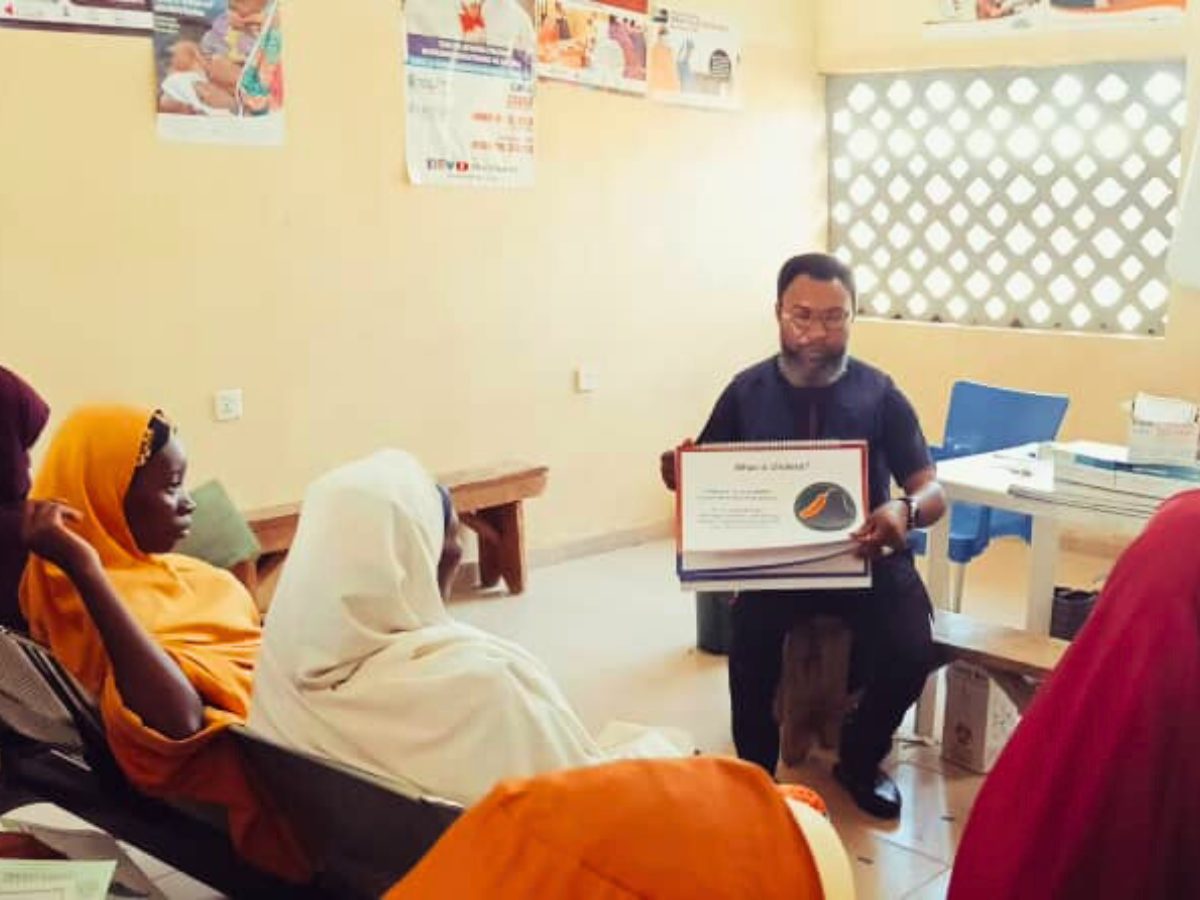For Tanzania’s Kemirembe Lwota, ICAP’s HIV prevention work has been an inspiration. After learning about the impact of this work, the honorable member of parliament, who has been tasked to represent women from her home region of Mwanza, was motivated to host a series of health workshops to encourage women leaders to be more knowledgeable about and more engaged with HIV prevention.
In January, she invited more than 500 women leaders from each of the region’s eight districts to six half-day workshops where ICAP staff facilitated sessions providing information around HIV transmission, demonstrations of commonly used reproductive health products, and overviews of ICAP’s work across the country.
The can-do spirit of the Hon. Lwota reflects the determination of Tanzania’s women leaders to eradicate HIV in the sub-Saharan African country once and for all.
“I first met ICAP as a member of the Standing Committee for HIV and Drugs when they came to introduce us to the work that they do,” she said. “When they were explaining their work, they mentioned all the regions [of Tanzania] they were active in, including where I came from in Mwanza region. HIV prevalence in my region is quite high and it’s something which people need to be aware of. After meeting ICAP, I introduced this initiative to go and speak with women leaders at the local level about HIV because when you educate a woman, you educate her family and then her community.”
“When you educate a woman, you educate her family and then her community.”
– Hon. Kemirembe Lwota, MP
Some participants traveled long distances through heavy rains—with one participant even traveling by boat from a remote island—to attend the workshops. All were eager to participate, and although HIV can be a delicate topic to navigate, participants were soon leading informal and informed conversations with their peers about risk factors for contracting HIV and ways that they could protect their selves from the virus.
Tanzania is on the forefront of ending the spread of HIV, with significant reductions in AIDS-related deaths and new infections over the past ten years. Much of this progress is credited to the extensive roll-out of antiretroviral treatment in the country’s health facilities. However, tens of thousands of people continue to be infected every year with key affected populations—such as men who have sex with men, people who inject drugs, sex workers, and communities along high traffic and hard-to-reach areas— seeing the highest rates of new infection.
“It is important to educate these community leaders because they are listened to. We have a huge problem of unawareness of HIV because in our tradition it is something that people never talk about in their families,” said the Hon. Lwota. “When you empower these women leaders with this information, it’s much easier for them to talk about to the people they meet every day. ICAP has been very supportive and I appreciate the work they are doing in Mwanza region and in the country as a whole.”
ICAP’s work in the country, in partnership with the Ministry of Health and Social Work, has driven innovative support services for HIV testing, treatment, and care in these vulnerable communities. With ongoing funding from the U.S. President’s Emergency Plan for AIDS Relief (PEPFAR) through the Centers for Disease Control and Prevention (CDC), ICAP has lead outreach to remote island communities through the purchase of a boat for health outreach workers and the opening of Mwanza region’s first methadone clinic for people struggling with addiction.
“ICAP has been at the forefront of innovative outreach strategies to curb new HIV infections in Tanzania, but we couldn’t do anything without the steadfast support of leaders in the public sector like the Honorable Lwota,” said ICAP in Tanzania Country Director Fernando Morales, MD. “Her energetic initiative to empower women leaders in her region with important information will not only help them better protect themselves from HIV infection, but also the communities that they work in. The future of Tanzania and the health of its people looks bright, thanks to her dedication.”
A global health leader since 2003, ICAP was founded at Columbia University with one overarching goal: to improve the health of families and communities. Together with its partners—ministries of health, large multilaterals, health care providers, and patients—ICAP strives for a world where health is available to all. To date, ICAP has addressed major public health challenges and the needs of local health systems through 6,000 sites across more than 30 countries.







